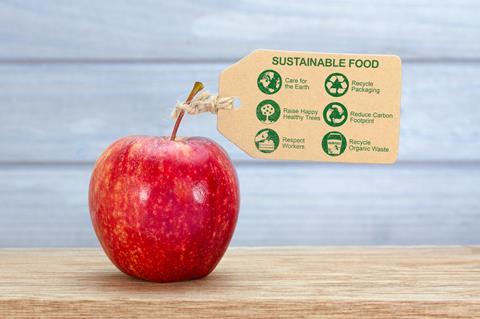Agrifood companies are well used to tracking key performance indicators. The reality is they now need to monitor sustainability performance closely too

In today’s fast-evolving agrifood business, a company’s success is no longer measured solely in terms of financial gain. Increasingly, its impact on the environment and on society is also taken into account. Sustainability has become imperative when it comes to business performance.
One crucial tool in this area is the tracking of Sustainability Performance Indicators (SPIs), which have started to rival Key Performance Indicators (KPIs) in terms of their importance for organisational success.
SPIs allow companies to assess their performance on environmental, social, and governance (ESG) standards. Just as well-structured KPIs offer insight into financial health and operational efficiency, SPIs shed light on a company’s sustainability efforts.
By quantifying and monitoring them, businesses can identify areas for improvement, set meaningful targets, and track their progress over time.
Why prioritise SPIs? Well, in today’s interconnected world, consumers, investors and regulators increasingly are watching closely. Companies that report their sustainability performance can build trust and credibility with those stakeholders, enhance brand reputation, and mitigate risks associated with sustainability-related controversies.
Doing so can also drive innovation and resilience. Embrace sustainable practices, and you often discover new ways to gain efficiency, save cost, and enter new markets. For example, SPIs related to energy consumption may lead you to adopt renewables and optimise processes. This leads to reduced operational costs and carbon emissions.
Take the Summer Berry Company, for example. It already recognises the benefit of a well-constructed SPI framework, as CEO David Sanclement explains: “Our SPI results have been integrated into our investor reporting for some time now. Our reporting framework supports objective setting and tracking progress delivery over time.”
Global avocado supplier Westfalia also understands the benefits. “Ensuring consistent data collection across a global supply chain is a significant challenge,” says chief sustainability officer Johnathan Sutton, “but it’s crucial for tracking our environmental improvements.”
Here are some examples of SPIs to consider…
Carbon footprint
Track greenhouse gas emissions across operations and supply chains. Identify opportunities for emission reductions and meet net zero targets.
Waste reduction
Monitor waste generation, recycling rates, and waste-to-energy initiatives. Minimise environmental impact and operational costs.
Water use efficiency
Assess water consumption. Identify ways to optimise operational water use.
Diversity and inclusion metrics
Assess workforce diversity, gender pay equity, and employee satisfaction. Foster an inclusive workplace culture, and drive innovation.
Supplier sustainability
Evaluate suppliers, based on environmental and social criteria. Promote responsible sourcing practices and supply chain resilience.

As businesses navigate an increasingly complex and interconnected world, prioritising sustainability is no longer optional. It’s now essential for long-term success. By constructing and tracking SPIs as an integral part of their business reporting, companies can demonstrate a commitment to sustainability, drive innovation, and create shared value for stakeholders and society as a whole.
Let’s embrace sustainability as a core business principle, and pave the way to a greener, more resilient future.
Richard Bonn spoke at the Fresh Produce Journal’s Festival of Fresh event in Evesham, UK, on 13 June. For more information, visit fruitnet.com/festivaloffresh






